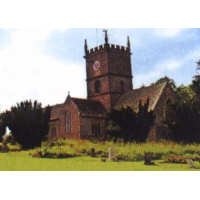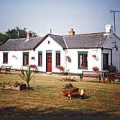
|
|||||

Hippo The Watersaver
 is the simple, proven and low cost water saving device to help conserve water i.. is the simple, proven and low cost water saving device to help conserve water i..
Gallery 54 - Ross on..
 Contemporary abstract art, ceramics and glassware Contemporary abstract art, ceramics and glassware
Life Changing Activi..
 Fun, adventure, and personal growth in the Great Outdoors Fun, adventure, and personal growth in the Great Outdoors
|
Staunton
 Staunton, "the place of the stones", was the ancient name given by the Anglo-Saxons. The village has stones of ancient origins and of mysterious forms, these are the Buck, Toad, Broad, Long and Queen Stone, all of which have origins dating back to the Bronze and Iron Ages. The Buckstone lies in Highmeadow Woods near the village. The huge rock on the summit of Buckstone Hill is said to have been used in Druid ceremonies, and actually used to rock before it was dislodged in 1885. This point is at 915 feet and one can view panoramic scenery such as views over the Forest of dean, Highmeadow Woods and the Black Mountains. The woods around Staunton are not actually part of the Royal Forest but are part of the Manor of Staunton. Staunton, "the place of the stones", was the ancient name given by the Anglo-Saxons. The village has stones of ancient origins and of mysterious forms, these are the Buck, Toad, Broad, Long and Queen Stone, all of which have origins dating back to the Bronze and Iron Ages. The Buckstone lies in Highmeadow Woods near the village. The huge rock on the summit of Buckstone Hill is said to have been used in Druid ceremonies, and actually used to rock before it was dislodged in 1885. This point is at 915 feet and one can view panoramic scenery such as views over the Forest of dean, Highmeadow Woods and the Black Mountains. The woods around Staunton are not actually part of the Royal Forest but are part of the Manor of Staunton.In the churchyard of All Saints Church, you will see the grave of David Mushet (1772-1847). With his son, he developed interest in the iron industry of Dean and laid much of the groundwork for the impending steel industry in Britain.
Churches
This is one of the oldest churches on the borders of the Forest of Dean, built in the early part of the 12th century, however, alterations and additions have been made throughout the middle ages and a 19th century restoration was also carried out. The central tower is the most striking external feature as well as the sundial on the south porch. Ancient standing stones can also be seen in the parish.
Nearby Accommodation
|
||||
|
|
|||||
